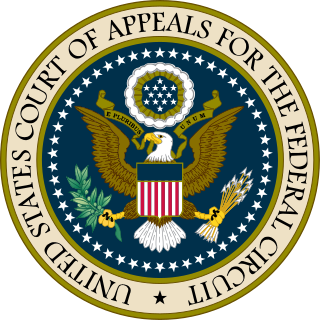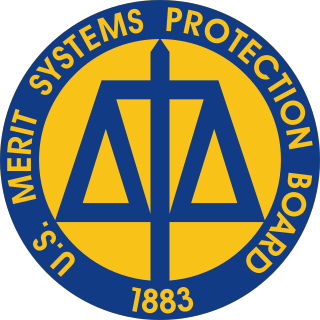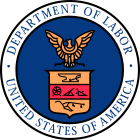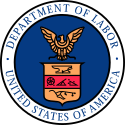
The United States Department of Labor (DOL) is one of the executive departments of the U.S. federal government. It is responsible for the administration of federal laws governing occupational safety and health, wage and hour standards, unemployment benefits, reemployment services, and occasionally, economic statistics. It is headed by the secretary of labor, who reports directly to the president of the United States and is a member of the president's Cabinet.

The National Labor Relations Board (NLRB) is an independent agency of the federal government of the United States that enforces U.S. labor law in relation to collective bargaining and unfair labor practices. Under the National Labor Relations Act of 1935, the NLRB has the authority to supervise elections for labor union representation and to investigate and remedy unfair labor practices. Unfair labor practices may involve union-related situations or instances of protected concerted activity.

The Oregon Supreme Court (OSC) is the highest state court in the U.S. state of Oregon. The only court that may reverse or modify a decision of the Oregon Supreme Court is the Supreme Court of the United States. The OSC holds court at the Oregon Supreme Court Building in Salem, Oregon, near the capitol building on State Street. The building was finished in 1914 and also houses the state's law library, while the courtroom is also used by the Oregon Court of Appeals.

The United States Court of Appeals for the Federal Circuit is one of the 13 United States courts of appeals. It has appellate jurisdiction over certain categories of specialized cases in the U.S. federal court system. Specifically, it has exclusive appellate jurisdiction over all U.S. federal cases involving patents, trademark registrations, government contracts, veterans' benefits, public safety officers' benefits, federal employees' benefits, and various other types of cases. The Federal Circuit has no jurisdiction over criminal, bankruptcy, immigration, or any U.S. state law cases. It is headquartered at the Howard T. Markey National Courts Building in Washington, D.C.

The United States Court of International Trade is a U.S. federal court that adjudicates civil actions arising out of U.S. customs and international trade laws. Seated in New York City, it exercises broad jurisdiction over most trade-related matters, and is permitted to hear and decide cases anywhere in the country, as well as abroad.
An administrative law judge (ALJ) in the United States is a judge and trier of fact who both presides over trials and adjudicates claims or disputes involving administrative law. ALJs can administer oaths, take testimony, rule on questions of evidence, and make factual and legal determinations.
An unfair labor practice (ULP) in United States labor law refers to certain actions taken by employers or unions that violate the National Labor Relations Act of 1935 29 U.S.C. § 151–169 and other legislation. Such acts are investigated by the National Labor Relations Board (NLRB).

The United States Tax Court is a federal trial court of record established by Congress under Article I of the U.S. Constitution, section 8 of which provides that the Congress has the power to "constitute Tribunals inferior to the supreme Court". The Tax Court specializes in adjudicating disputes over federal income tax, generally prior to the time at which formal tax assessments are made by the Internal Revenue Service.

The Board of Immigration Appeals (BIA) is an administrative appellate body within the Executive Office for Immigration Review of the United States Department of Justice responsible for reviewing decisions of the U.S. immigration courts and certain actions of U.S. Citizenship Immigration Services, U.S Customs and Border Protection, and U.S. Immigration and Customs Enforcement. The BIA was established in 1940 after the Immigration and Naturalization Service was transferred from the United States Department of Labor to the Department of Justice.
The Board of Patent Appeals and Interferences (BPAI) was an administrative law body of the United States Patent and Trademark Office (USPTO) which decided issues of patentability. Under the America Invents Act, the BPAI was replaced with the Patent Trial and Appeal Board (PTAB), effective September 16, 2012.

The Coast Guard Judge Advocate General oversees the delivery of legal services to the United States Coast Guard, through the Office of the Judge Advocate General in Washington, the Legal Service Command, offices in the Atlantic and Pacific Areas, nine Coast Guard Districts, the Coast Guard Academy, three training centers, and a number of other activities and commands. Legal services are delivered by Coast Guard judge advocates and civilian counsel in ten legal practice areas: criminal law/military justice, operations, international activities, civil advocacy, environmental law, procurement law, internal organizational law, regulations and administrative law, legislative support and legal assistance.

The Merit Systems Protection Board (MSPB) is an independent quasi-judicial agency established in 1979 to protect federal merit systems against partisan political and other prohibited personnel practices and to ensure adequate protection for federal employees against abuses by agency management.
The Civilian Board of Contract Appeals (CBCA) is an adjudicative board composed of federal administrative judges that is housed within but functionally independent of the General Services Administration. The Civilian Board of Contract Appeals was established by Section 847 of the National Defense Authorization Act for Fiscal Year 2006, with an effective date of January 6, 2007, to hear and decide contract disputes between Government contractors and Executive agencies under the provisions of the Contract Disputes Act, 41 U.S.C. §§ 7101 et seq., and regulations and rules issued under that statute.

The Department of Labor's Benefits Review Board was created in 1972, by the United States Congress, to review and issue decisions on appeals of workers’ compensation claims arising under the Longshore and Harbor Workers’ Compensation Act and the Black Lung Benefits amendments to the Federal Coal Mine Health and Safety Act of 1969.

Thomas Edward Perez is an American politician and attorney who served as the senior advisor to the president of the United States and the director of the White House Office of Intergovernmental Affairs from 2023 to 2025. Perez previously served as the United States Secretary of Labor (2013–2017), the chair of the Democratic National Committee (2017–2021), and United States Assistant Attorney General for Civil Rights (2009–2013).

The Executive Office for Immigration Review (EOIR) is a sub-agency of the United States Department of Justice whose chief function is to conduct removal proceedings in immigration courts and adjudicate appeals arising from the proceedings. These administrative proceedings determine the removability and admissibility of individuals in the United States. As of January 19, 2023, there were sixty-eight immigration courts and three adjudication centers throughout the United States.

The Davis–Bacon Act of 1931 is a United States federal law that establishes the requirement for paying the local prevailing wages on public works projects for laborers and mechanics. It applies to "contractors and subcontractors performing on federally funded or assisted contracts in excess of $2,000 for the construction, alteration, or repair of public buildings or public works".
The Board of Veterans' Appeals (BVA) is an administrative tribunal within the United States Department of Veterans Affairs (VA), located in Washington, D.C. Established by Executive Order on July 28, 1933, the Board reviews and makes decisions on appeals concerning veterans' benefits. Its mission is to conduct hearings and issue decisions promptly, ensuring all relevant evidence and applicable laws and regulations are considered to provide fair outcomes for veterans, their dependents, and survivors. The Board operates on behalf of the Secretary of Veterans Affairs.
The Patent Trial and Appeal Board (PTAB) is an administrative law body of the United States Patent and Trademark Office (USPTO) which decides issues of patentability. It was formed on September 16, 2012, as one part of the America Invents Act. Prior to its formation, the main judicial body in the USPTO was the Board of Patent Appeals and Interferences (BPAI).
The National War Labor Board, commonly the War Labor Board, was an independent agency of the United States government, established January 12, 1942, by an executive order of President Franklin D. Roosevelt, the purpose of which was to mediate labor disputes as part of the American home front during World War II.












